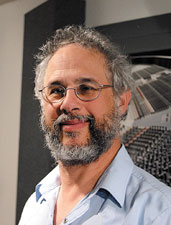|
|
Plugging In |
October 2003 |
|
Several times over the years, I have raised objections about the overwhelming number of mutually incompatible plug-in architectures. There appear to be more formats than ever today, and although the variety of plug-ins is glorious, I don't think the flood of formats has enhanced our musical lives.
This subject came to mind again when EM decided to check out some representative EQ plug-ins for this month's cover story, ’ÄúPlugging into EQ,’Äù on p. 46. Our intent was as much to discuss the general subject of EQ plug-ins as to round up specific products, but we did want to evaluate a small yet representative sampling of EQ plug-ins. We immediately realized that if we included plug-ins that were available for only one or two formats, we would soon be writing a book, not an article.
Ultimately, we decided to work with plug-ins that were either available in a cross-platform format (such as VST) or were available in multiple formats that included both platforms. At that point, we had narrowed the included companies down to a manageable number, and limiting coverage to one product per company allowed us to hit our target number of products.
That's fine for a magazine article, but the multiplicity of formats got me thinking again about how much easier our work would have been had we been able to deal with just a single, standardized native architecture. Although I've heard reasonable explanations for why such an architecture hasn't been developed, I'm unconvinced that it can't be done. Another solution would be to create separate architectures for native Mac and Windows programs. Microsoft has DirectX, and Audio Units may evolve into a fully supported standard for Mac OS X. But so far, no proprietary formats have been replaced by these OS-based systems.
With formats that run on DSP cards, such as TDM and the modified VST for UAD-1 and PowerCore, the only way around having multiple formats would be for all cards to use the same DSP chip set. I suppose that's possible, but I'm not holding my breath.
With native software, though, the odds should be better. VST comes the closest to being a universal cross-platform native format; its development, however, relies on Steinberg rather than on an industrywide organization, which means that one company controls how plug-ins are written that ultimately have to run in a competitor's environment. VST probably won't completely win the day unless it is independently developed, as well as technologically equal or superior. Third-party plug-ins that are not written strictly to the specification ’Äî currently a bane of host-software developers ’Äî should simply be rendered incapable of launching at all. Then there will be no legitimate argument for not supporting VST.
Maybe the idea of one or at most two native formats is a lost cause, but I don't think so. Sooner or later, either one developer and its format will rise to dominance, the way that Adobe Photoshop and Quark Xpress have done to some extent, or native host-software developers will learn to cooperatively define how plug-ins should work within an audio-editing environment. If not, then music software will be stuck in the 20th century. And that's ancient history in the tech world. |
